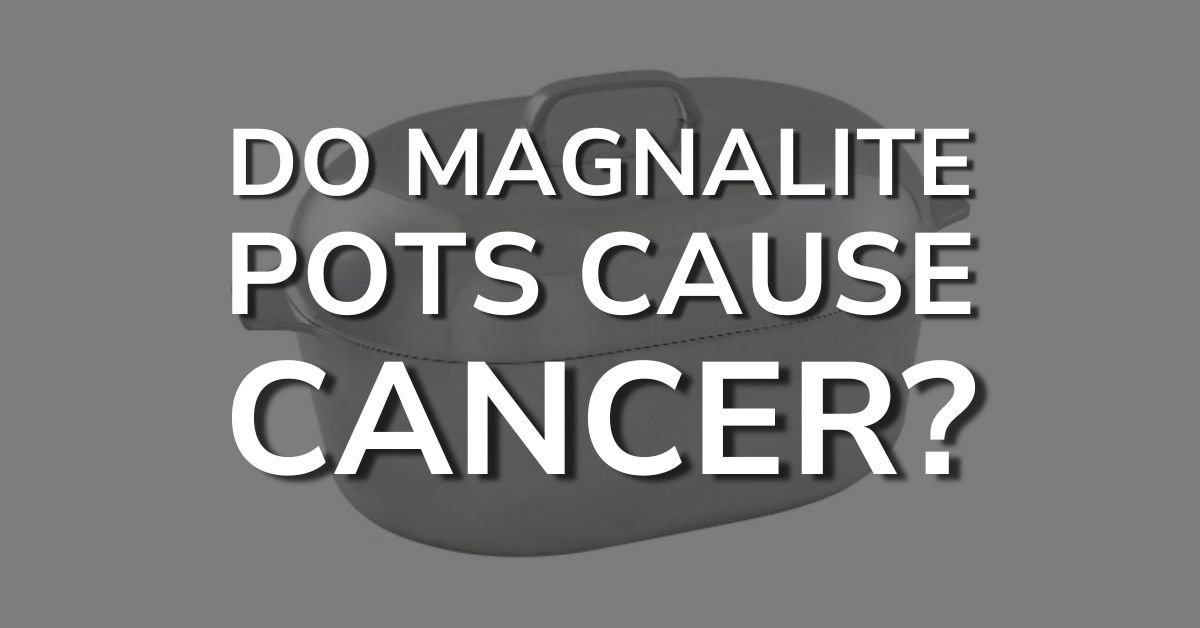The debate around whether Magnalite pots cause cancer has been gaining traction in recent years. While the prospect is alarming, it’s crucial to separate fact from fiction.
But do magnalite pots actually cause cancer? Concerns around Magnalite pots and cancer are primarily due to their aluminum content, as high levels of aluminum exposure have been speculated to be linked to health risks, including neurological issues. However, there is no conclusive scientific evidence that cooking with aluminum cookware, like Magnalite pots, directly causes cancer.
The amount of aluminum that leaches into food from cookware is minimal and generally considered safe by health standards. It’s important to use these pots as intended and maintain them properly to minimize any potential risks. Always consider consulting with health professionals or reliable health sources for concerns about cookware and cancer risk.
In this article, we will dig deep into the science and studies that discuss Magnalite pots and their alleged link to cancer.
Aluminum and Its Role
Magnalite pots are made from an aluminum alloy. Aluminum is a light, durable, and cost-effective material, making it popular for cookware. However, concerns have been raised about its safety, particularly in terms of leaching into food.
Aluminum naturally reacts with acidic and alkaline substances, meaning there’s potential for the metal to end up in your meal. Some studies have found a connection between high levels of aluminum in the body and neurological issues like Alzheimer’s disease[1], but the evidence is far from conclusive when it comes to cancer.
What Does Science Say?
The World Health Organization (WHO) has set a provisional tolerable weekly intake of aluminum at 2mg per kilogram of body weight[2]. In reality, most people consume much less aluminum from their diet, and the average intake is generally considered safe.
Moreover, the American Cancer Society states that there is currently insufficient evidence to label aluminum as a carcinogen[3].
The Coating Factor
Some Magnalite pots are coated with non-stick layers that may contain perfluorinated compounds like PFOA. Although PFOA has been associated with cancer in animal studies[4], its effects on human health are still being researched.
The Dark Side of Non-Stick Coatings
Non-stick coatings, particularly older types, often contain compounds like perfluorooctanoic acid (PFOA) and polytetrafluoroethylene (PTFE), known commercially as Teflon. These compounds offer a smooth, easy-to-clean cooking surface, but they’re not without controversy.
When overheated, non-stick coatings can break down and release toxic fumes. Inhaling these fumes can lead to polymer fume fever, a temporary flu-like condition1. While the symptoms usually resolve within a few days, it raises concerns about long-term exposure.
More alarmingly, PFOA has been labeled as a “likely” human carcinogen by the U.S. Environmental Protection Agency2. Animal studies have shown that PFOA exposure can lead to a variety of tumors, including testicular, pancreatic, and liver cancer [5].
The industry has been phasing out the use of PFOA, but not all non-stick cookware is PFOA-free, especially older models. If you’re using a non-stick pot or pan, it’s essential to keep it in good condition. Scratches can accelerate the breakdown of the non-stick surface, increasing the risk of leaching harmful substances into your food.
Given these concerns, some people are turning to alternative non-stick surfaces like ceramic coatings or hard-anodized aluminum, which are free from PFOA and PTFE. Still, as with any cookware, it’s vital to use them correctly and be aware of their limitations.
Feel free to insert this into the “The Coating Factor” section to provide a more nuanced perspective on the health risks associated with non-stick coatings.
Are There Safer Alternatives?
If the thought of aluminum or non-stick coatings makes you uncomfortable, there are alternative materials like stainless steel, cast iron, and ceramic that are generally considered safe. Always be mindful of the types of foods you’re cooking—acidic foods like tomatoes are more likely to react with aluminum.
Summary
While there are concerns about aluminum cookware like Magnalite pots, the scientific consensus is that there is insufficient evidence to definitively link them to cancer. If you’re worried about potential risks, consider alternative materials for your cookware.

